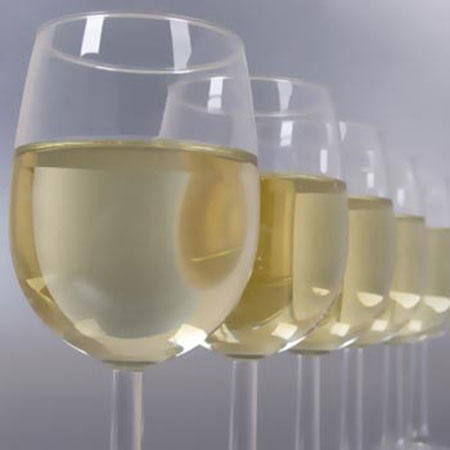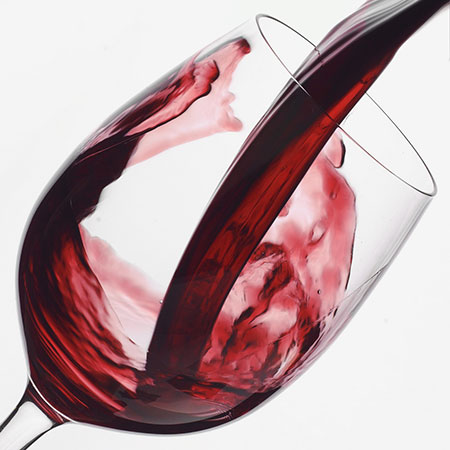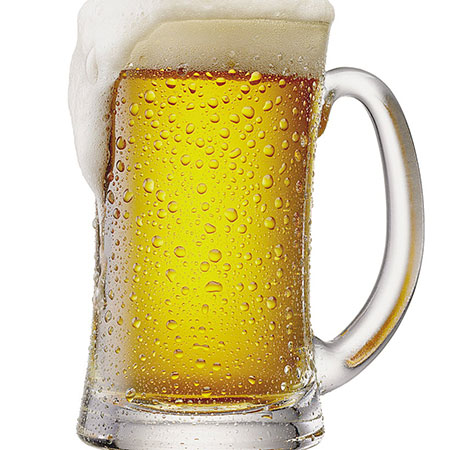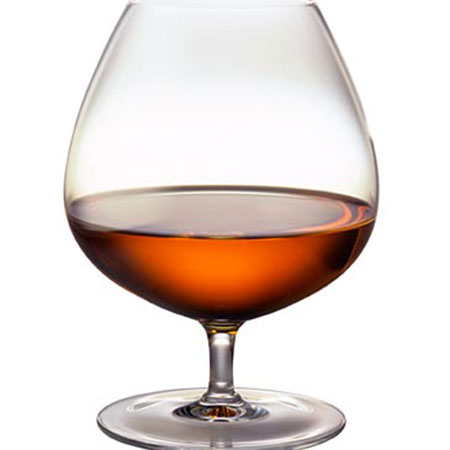At this time of year, even the most strong-willed of us can indulge in a tipple too many - only to regret it the next morning. So, what is the best way to avoid a hangover?
All alcoholic beverages are variations of the chemical ethanol and the liver and brain deal with it the same way, regardless of whether you're quaffing Champagne or downing beer.
But your favourite drink may also include ingredients that not only make a difference to how fast alcohol affects you but also how you feel the morning after.
Here, with the help of a leading expert on alcohol toxicology, Professor Wayne Jones, of the University of Health Sciences in Linkˆping, Sweden, we look at the differences between popular alcoholic drinks - and their hangover effect.
And be warned: 'If you drink any type of alcohol on an empty stomach, the rate of absorption is sometimes so fast that it compares with getting it intravenously,' says Professor Jones.

VODKA
Vodka is made by fermenting grains or crops such as potatoes with yeast. It's then purified and repeatedly filtered, often through charcoal, strange as it sounds, until it's as clear as possible.
PROS: Vodka is the 'cleanest' alcoholic beverage because it contains hardly any 'congeners' - impurities normally formed during fermentation. These play a big part in how bad your hangover is.
Despite its high alcohol content - around 40 per cent - vodka is the least likely alcoholic drink to leave you with a hangover, said a study by the British Medical Association.
CONS: Vodka is often a factor in binge drinking deaths because it is relatively tasteless when mixed with fruit juices or other drinks.
HANGOVER SEVERITY: 3/10

WHISKEY
Whisky or Scotch is distilled from fermented grains, such as barley or wheat, then aged in wooded casks.
PROS: Single malt whiskies have been found to contain high levels of ellagic acid, according to Dr Jim Swan of the Royal Society of Chemists. This powerful acid inhibits the growth of tumours caused by certain carcinogens and kills cancer cells without damaging healthy cells.
CONS: Whisky 'madness' - erratic and unpredictable behaviour - is a common problem with drinking whisky. It's caused by the way most people drink it - neat, explains Professor Jones.
His experiments show that among people drinking the same amount of ethanol, those drinking it in the form of spirits, such as whisky, had the quickest and highest peak in the blood alcohol concentration, which occurred less than an hour after drinking began.
Whisky also contains lots of congeners, which tend to form during the ageing process in oak casks. A study by the BMA found that as a result, Bourbon Whiskey is twice as likely to cause a hangover as the same amount of vodka.
HANGOVER SEVERITY: 8/10

WHITE WINE
White wine is made from the fermented juice of grapes stripped of their seeds and skins.
PROS: American researchers found that grape flesh contains the chemicals tyrosol and hydroxytyrosol, which help lower arteryclogging LDL cholesterol.
CONS: It's the sulphites formed naturally or added to white wine as preservatives to stop it going brown which are the most likely cause of the 'white wine hangover' many people complain of.
Sulphites also carry the risk of an allergic reaction which can worsen symptoms such as a headache, or asthma. White wines also wear away tooth enamel faster, making teeth more sensitive.
HANGOVER SEVERITY: 6/10

RED WINE
Red wine is made from fermented grape juice - but unlike white wine, with the skin and pips included. It's then left to mature for a minimum of three years, during which pigments from the skins leech out and colour the wine red.
PROS: Contains more reservatrol - a plant anti- oxidant - than white wine. This helps to prevent blood clots and reduce inflammation, which is now considered to play a key role in heart disease. Also, the pips and skins used in red wines contain tyrosol and hydroxytyrosol, chemicals which help lower artery-clogging LDL cholesterol.
CONS: Red wine drinkers can get worse hangovers than beer or white wine drinkers. Because of the way it's made, red wine produces two types of alcohol - ethanol and methanol. The liver processes the ethanol part of the drink first and leaves methanol until last. 'As a result, it's likely to be floating around in the body for a lot longer than ethanol, giving you that familiar "morning after" feeling,' says Professor Jones.
HANGOVER SEVERITY: 7/10

BEER
Beer is made by fermenting barley. Hops are added for flavour and yeast to make the grains ferment into sugar and alcohol.
PROS: Beer is the least dangerous to drink and makes you feel you drunk the slowest.
It has the lowest alcohol content - between 3 and 6 per cent for lager, and up to 8 per cent for ale and stout.
A pint also contains more than a quarter of an adult's recommended dose of Vitamin B folate, which stops the build-up of homocysteinea chemical linked to heart attacks.
CONS: Beer is high in compounds called purines, which boost the levels of uric acid in the blood, according to a study at Massachusetts General Hospital.
This can form crystals in joints, leading to painful attacks of gout.
The 12-year study found that drinking more than two beers a day doubled the risk.
HANGOVER SEVERITY: 4/10

BRANDY
Brandy is a spirit distilled from red wine. Fine brandies are aged for extra flavour in wooden casks.
PROS: Because brandy is a distillation of red wine, it contains a high concentration of antioxidants which mop-up 'free radicals' which, it's claimed, can damage the body organs and tissues and lead to deadly diseases.
CONS: It could give you the worst headache of all, according to research at London's National Hospital for Neurology and Neurosurgery. This was closely followed by red wine, then rum, whisky and gin. Not only does brandy contain at least 40 per cent alcohol, the high quality cask-aged variety is likely to have the highest amounts of congeners, which are formed during the lengthy storage and fermentation process.
Professor Jones says: 'Brandy contains literally hundreds of different volatile compounds, which gives it the distinctive pleasant smell but also contributes to the hangover.'
HANGOVER SEVERITY: 9/10

CHAMPAGNE
Champagne and sparkling wine are made in roughly the same way as wine - but then more yeast is added and it's left to ferment in the bottle a second time, producing carbon dioxide.
PROS: The antioxidants in Champagne may help protect your brain against damage incurred during a stroke and against neurological disorders such as Parkinson's and Alzheimer's diseases, according to a team of researchers from the University of Reading. They found that high levels antioxidants, called caffeic acid and tyrosol, helped protect brain cells from damage.
CONS: The bubbles speed up the absorption of alcohol into the bloodstream. And contrary to popular belief, Champagne won't lift your spirits - alcohol affects brain receptors in the same way, whatever its source.
HANGOVER SEVERITY: 7/10
Source: DailyMail
 The Standard Group Plc is a multi-media organization with investments in media
platforms spanning newspaper print
operations, television, radio broadcasting, digital and online services. The
Standard Group is recognized as a
leading multi-media house in Kenya with a key influence in matters of national and
international interest.
The Standard Group Plc is a multi-media organization with investments in media
platforms spanning newspaper print
operations, television, radio broadcasting, digital and online services. The
Standard Group is recognized as a
leading multi-media house in Kenya with a key influence in matters of national and
international interest.
